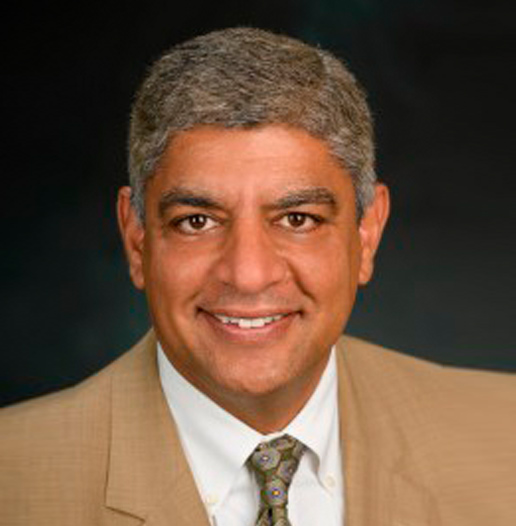Annual Event Continues to Shape Systems Engineering
As the 20th Conference on Systems Engineering Research (CSER) approaches on March 16-17, honorary chairs Dr. Dinesh Verma and Dr. Azad Madni are looking forward to an annual and international gathering that has grown the field of systems engineering and is poised for future impact.
Verma, the Executive Director of the Systems Engineering Research Center (SERC) and the Acquisition Innovation Research Center (AIRC), previously served as Dean of the School of Systems and Enterprises at Stevens Institute of Technology (Stevens). Soon after the school was founded, he and his colleagues held a retreat to discuss ideas.
“We had an offsite on what could we do to create a leadership position for ourselves within the systems community,” Verma said. “One of the outputs was we ought to host a research conference annually.”
Verma and his Stevens colleagues in New Jersey wanted CSER to have a national reach, so they connected with the University of Southern California (USC) and leading systems engineers such as Madni and the late Dr. Elliot Axelband.
“The partnership of USC with Stevens led to the creation of CSER and provided researchers across the country a forum to share their research and pursue potential collaborations,” said Madni, who is a member of the SERC Research Council. “Systems engineering research had just begun to gain momentum in government and aerospace, but findings were sparse and fragmented.”
The ecosystem of expertise and collaboration that Stevens and USC began cultivating with the inaugural CSER in 2003 caught the attention of the Department of Defense (DoD), which at the time was growing more interested in applying systems engineering to its priorities. The DoD established the SERC in 2008 as a University Affiliated Research Center (UARC), and many of the universities and researchers that populated the first CSERs became a part of the SERC network.
“It’s not a coincidence that the SERC is led by Stevens, with USC as its primary collaborator,” Verma said. “It was, in fact, CSER that helped us create awareness within the DoD for the need for research in systems engineering.”
Stevens will host CSER for the seventh time in 2023. USC has also hosted seven times, and six other universities have hosted, including ones in England and Norway. The theme this year – “Systems Engineering Toward a Smart and Sustainable World” – was selected by Stevens professors Dr. Steven Hoffenson and Dr. Lu Xiao.
Verma endorsed the idea. “Modern society depends upon complex systems, whether they are energy systems, transportation systems, or national security systems,” he said. “But in this day and age, the moment you talk about systems becoming more complex, in the same breath, you can’t help but talk about systems needing to help us become a more sustainable society.”
Several SERC researchers will attend and present at CSER this year, and representatives from DoD entities that sponsor SERC research have indicated they will attend. The conference will include five keynote speakers, SEANET (a workshop for doctoral students), and presentations on digital engineering, system modularity, artificial intelligence and many related topics.
Madni said he is eager for the technical program. “Systems engineering is in the midst of a transformation fueled by advances in systems modeling languages, digital twin technologies, AI and machine learning, and analytics to enhance both system modeling and prediction capabilities,” he said. “Researchers presenting at CSER will continue to advance and shape the future of systems engineering, making it a much more transdisciplinary and society-centered discipline.”
Verma said he is also pleased to see the conference he helped start reach a milestone, and with momentum for the future. “It’s exciting to me that we have junior faculty who are already leaders within the systems community,” Verma said. “It’s time for the next generation to take over CSER and give it a personality that’s appropriate for the next twenty years. This is happening already.”
Register for CSER on the event page, and follow SERC on LinkedIn for updates on systems engineering research.


